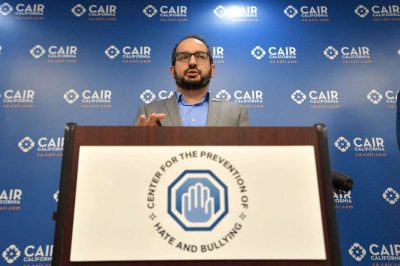For many American Muslims, the 9/11 attacks had far-reaching effects, changing their lives forever, and finding themselves forced to experience fear, hatred and prejudice against Islam.
Many researches and studies have revealed that one of incident’s negative effects is that bullying has become one of the biggest threats affecting the Black/African, Arab, Middle Eastern, Muslim and South Asian communities.
To provide a much-needed support, a new center focused on preventing hate and bullying opened its doors Wednesday, Nov. 3, in Anaheim, Los Angeles.
The Center for the Prevention of Hate and Bullying, first of it’s kind, was founded by the Council of American-Islamic Relations and will be based in its Los Angeles chapter headquarters.
“For the Muslim community, there are several major areas where hate impacts us,” its interim director Masih Fouladi during a news conference Wednesday, Orange County Register reported.
“Mosques are one of the first places where hate manifests.”
Combating Hate
The new center will lead “multifaceted efforts” to combat hate crimes and bullying, especially in schools and college campuses.
“(A college campus) is no long a place to share free thought,” he said, adding that those members of the community who are “visibly Muslim” such as women who wear hijabs, are also targets of hate.
The new center inauguration comes a few days after CAIR California released its 2021 Bullying Report Oct. 29. The report showed that about 56% of Muslim students in California said they feel “unsafe, unwelcome or uncomfortable” in school because of their religious identity.
The key findings from the results of CAIR-CA’s 2021 survey show that Muslim students in California continue to report high levels of Islamophobic bullying, harassment, and discrimination by both peers and adults, both in-person and online.
Respondents reported that these experiences have a negative impact on their educational experience and their comfort levels at school.
The center will also aim to collaborate with non-Muslims as well to learn about the issue affecting them, Fouladi said.
“We want to figure out solutions together,” he said.
“The hate we’re experiencing is systemic, and change is not going to happen with just one community. We need to work together.”


